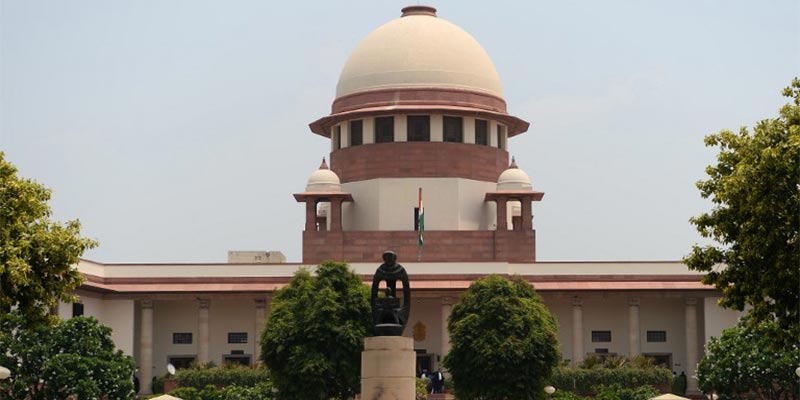- India
- Apr 20
What is Article 142?
• Vice President Jagdeep Dhankhar questioned the judiciary setting a timeline for the President to take decisions and act as a “super Parliament”.
• Dhankhar’s strong words to the judiciary came during his speech to Rajya Sabha interns, days after the Supreme Court sought to fix a timeline for the President to grant assent to the Bills reserved for her consideration by the Governor.
• The Vice President also described Article 142, which grants plenary powers to the Supreme Court, as a “nuclear missile against democratic forces available to the judiciary 24x7”.
What is Article 142?
• Article 142 is about the enforcement of decrees and orders of the Supreme Court.
• It deals with the Supreme Court’s power to exercise its jurisdiction and pass order for doing complete justice in any cause or matter pending before it.
• It states that, “The Supreme Court in the exercise of its jurisdiction may pass such decree or make such order as is necessary for doing complete justice in any cause or matter pending before it, and any decree so passed or orders so made shall be enforceable throughout the territory of India in such manner as may be prescribed by or under any law made by Parliament and, until provision in that behalf is so made, in such manner as the President may by order prescribe.”
• Section 2 states that “Subject to the provisions of any law made in this behalf by Parliament, the Supreme Court shall, as respects the whole of the territory of India, have all and every power to make any order for the purpose of securing the attendance of any person, the discovery or production of any documents, or the investigation or punishment of any contempt of itself.”
Recent cases invoking Article 142
• In May 2022, the Supreme Court ordered the release of A.G. Perarivalan, who served over 30 years in jail in the Rajiv Gandhi assassination case.
• On November 9, 2019, the Supreme Court in the judgment on the Ayodhya title dispute used special powers granted in the Article 142 of the Constitution. Though the disputed 2.77 acres of land was awarded for a temple, based on the evidence, the apex court invoked the powers of Article 142 to grant five acres for a mosque in Ayodhya.
• The SC bench also invoked this Article to grant relief to Nirmohi Akhara and sought its inclusion on the trust formed by the Centre under Section 6 of the Ayodhya Act to construct temple.
• In October 2019, the Supreme Court exercised its inherent powers under Article 142 of the Constitution to annul a marriage of an estranged couple, residing separately for over two decades, saying it was a case of irretrievable breakdown of wedlock.
• In December 2015, the Supreme Court appointed a former High Court judge Justice Virendra Singh as Uttar Pradeshs Lokayukta after the state government failed to comply with its directives. The UP government failed to meet the Supreme Court deadline to appoint Lokayukta even after two rounds of marathon talks, which failed to come up with a consensus name.
Manorama Yearbook app is now available on Google Play Store and iOS App Store

